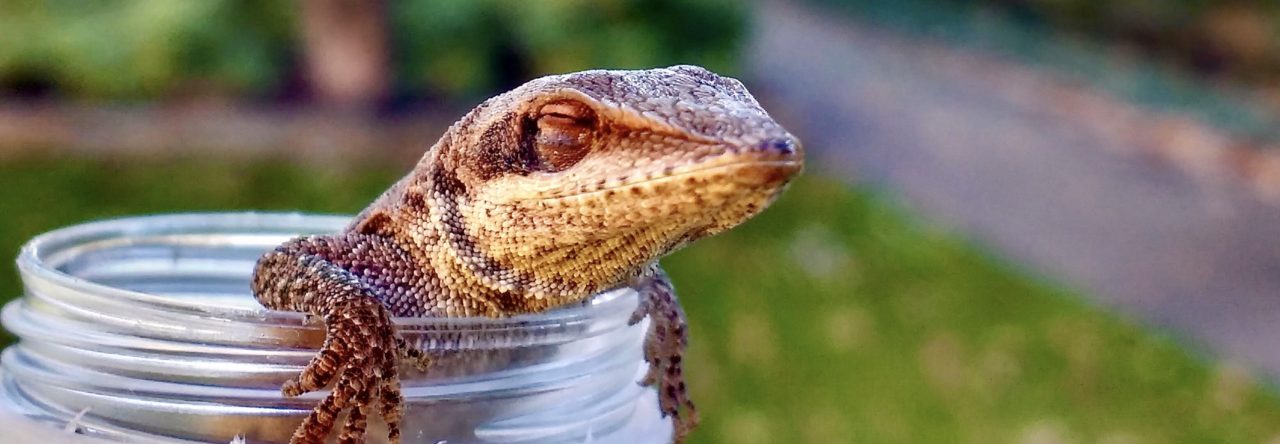From the September 28, 2017 edition of The Royal Gazette, the daily newspaper of Bermuda.
Fears over lizard arrival
Jonathan Bell
Bermuda’s latest lizard arrival, the brown anole, appears to be thriving but is prompting concern over the island’s endangered natives.
The lizards, first seen in 2014 and recently spotted on the grounds of Aberfeldy Nursery in Paget, are suspected to have arrived from Florida.
One of that state’s most abundant lizards, the anole arrived there from the Caribbean, where it is native to the Bahamas and Cuba.
Popular as pets but aggressive breeders in the wild, the lizard, distinguished by ridges on its back, has proliferated in the southern United States.
According to the Department of Environment and Natural Resources, Bermuda has two distinct populations of brown anoles.
Genetic analysis shows that the two groups came from “separate founding events”, meaning the second did not arise from the first.
Noting the lizard’s capacity to spread rapidly, Jonathan Starling, executive director of the environmental group Greenrock, voiced concern that the anole would ultimately crowd out Bermuda’s imperilled skinks.
“Unlike the three other Anolis species known to be in Bermuda, the common blue Jamaican, the Warwick or Antiguan and the Barbados, this one is primarily a terrestrial species, the rest being arboreal or tree dwelling,” Mr Starling said.
“The endemic Bermuda skink, already at critically low populations, is also a primarily terrestrial species, so this new lizard poses a much bigger threat to it than the others did.
“I am not aware of the current range of this new lizard but I believe it is still confined within Pembroke and Paget parishes, so at the moment it is not coming into conflict with the remaining known skink populations. However it is likely their range will expand and come into contact with known skink populations within a decade, if not sooner.”
The unwelcome development is the latest of many threats to the endemic skink, which are easily trapped and killed by discarded bottles and cans.
Skinks are also at jeopardy from storms, as well as predation from other invasive species such as cats and rats.
“We’d hope that new initiatives, such as mandatory recycling or a bottle bill, would at least reduce that particular threat to skinks, which would likely benefit them in handling the novel threat posed by this invasive lizard,” Mr Starling said.
- Evolution in Real Time on Lizard Island - March 23, 2025
- Spider Snags Adult Anolis osa - March 22, 2025
- An Homage to the Green Anoles of New Orleans - March 21, 2025



Leave a Reply